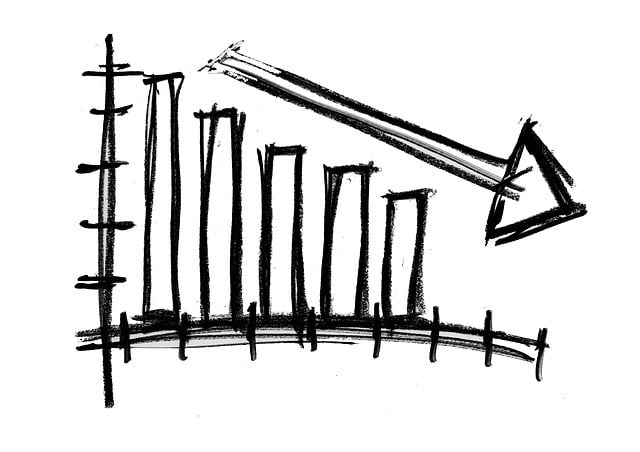
For industrial and commercial facility leaders, energy procurement works best from a comprehensive perspective. This means taking a lot into consideration, including when to renew your energy supply contract.
So, When Should You Renew?
There's no specific date you should stick to for contract renewal, but we can give you a ton of tips to help you renew your energy supply agreement at the perfect time for you.
The Best Time Is When Prices are Down
Energy is a commodity, so prices fluctuate. Of course, you want to solidify a contract when prices are lower — so you can pay less for what you use.
However, knowing when prices are down is another task in itself. Prices tend to change quickly. When they're down, you'll want to act fast.

Learn to Watch the Markets Before Renewing Your Energy Contract
If you really want to get the energy contract renewal thing right, you'll need to watch the markets. You can learn to do this yourself, or you can enlist the help of professional consultants to do it for you.
Watching the market involves two main aspects:
Figuring out how to read what you're seeing
Having the time to watch it on a consistent basis
As for having the time to watch the energy market consistently, we know that's a difficult task. Some companies choose to institute energy intelligence software (EIS) that sends alerts and notifications when there's pressing activity in the market. This technology is customizable and allows users to set their own budget constraints.
You may have one, both or neither of these. Whether or not you hire an energy procurement consultant is up to you — but ask yourself whether you're able to learn to watch the market and then keep your nose to the ground. An honest answer will make a huge, positive difference for your industrial or commercial business.
What to Know About Shoulder Months
You'll want to keep shoulder months in mind when figuring out when to renew your energy supply contract.
So what are shoulder months? The shoulder month period happens twice a year, once in the spring and once in the fall. It's when temperatures are most moderate and energy usage is the lowest. Think March–April and September–October.
With reduced demand comes lower prices on energy futures. This reduced volatility means it's a reliable time to consider renewing your contract.
However, shoulder months aren't the only time of the year that prices become more accessible. There are other aspects that affect load profiles, like plant closures and openings, natural disasters, political decisions, development and regulatory shifts.
That's why it's so important to watch the market consistently. Just know that shoulder months are a good starting point.
Take Future Load Usage Into Consideration
Are you planning to increase or decrease your load usage in the near future? When trying to figure out when to renew your contract, knowing if you're looking at heavy or light energy estimates will make a difference in how you build the contract. This includes when you choose to renew and whether you pick a long-term or short-term energy contract.
How COVID-19 Has Affected Energy Supply Pricing
During the initial months of the pandemic, load profiles shrunk a moderate amount. However, they have largely returned to normal.
In Pennsylvania, the average cost of commercial electricity for May 2024 is 10.20 cents per kWh, reflecting the broader trend of rising energy prices post-pandemic. This is significantly higher than the average price in July 2020, which was 7.45 cents per kWh, and even higher compared to the Mid-Atlantic region's average during that time.
The impact of COVID-19 on energy pricing has been multifaceted. Initially, the pandemic led to a significant drop in demand, resulting in lower prices. However, as economies reopened and demand surged, supply chain disruptions and geopolitical factors, such as the conflict in Ukraine, contributed to higher energy costs globally. Despite these challenges, Pennsylvania continues to strive for competitive energy prices.
Depressed energy pricing can cause a negative economic impact. However, Pennsylvania is a regular supplier of out-of-state energy too because the state mostly produces more energy than it uses.

Don't Wait Until the Last Minute to Renew Your Energy Supply Contract
Pro tip: Have some forethought when it comes to your energy supply contract.
If you wait for your contract expiration to renew, you may not have the chance to swoop in on the rates you want. Once you reach your expiration date, you'll have to get a new contract quick. This means you can get trapped in a contract that's pricier than otherwise.
But if you're proactive about it, you can take advantage of current price drops even when your contract expiration is still on the horizon. You can establish contract terms ahead of time. This also gives you the opportunity to negotiate — because you don't necessarily have to say yes to the first rate that comes your way.
When you do take on the task of renewing your contract, you may want to consider reconfiguring it for increased sustainability. Distributed generation and more can help you achieve both a low rate and low emissions — two birds with one stone.
For Energy Procurement, Timing Isn't Everything — But It's a Lot
At its core, energy procurement is a comprehensive task. So is knowing when to renew your energy supply contract.
Reading the market and timing it just right, estimating future usage, leaning on shoulder months, maneuvering through a pandemic that's hit the economy hard — these are all factors you'll need to take into consideration.
When it gets to be too much for someone who already runs a commercial or industrial business, energy procurement consultants serve as a helping hand. They can help you implement all the tools necessary to time your contract right, plus help you take advantage of future price dips.
Learn more about energy procurement from A1 Energy, where solutions are holistic and optimized for the facility at hand.

